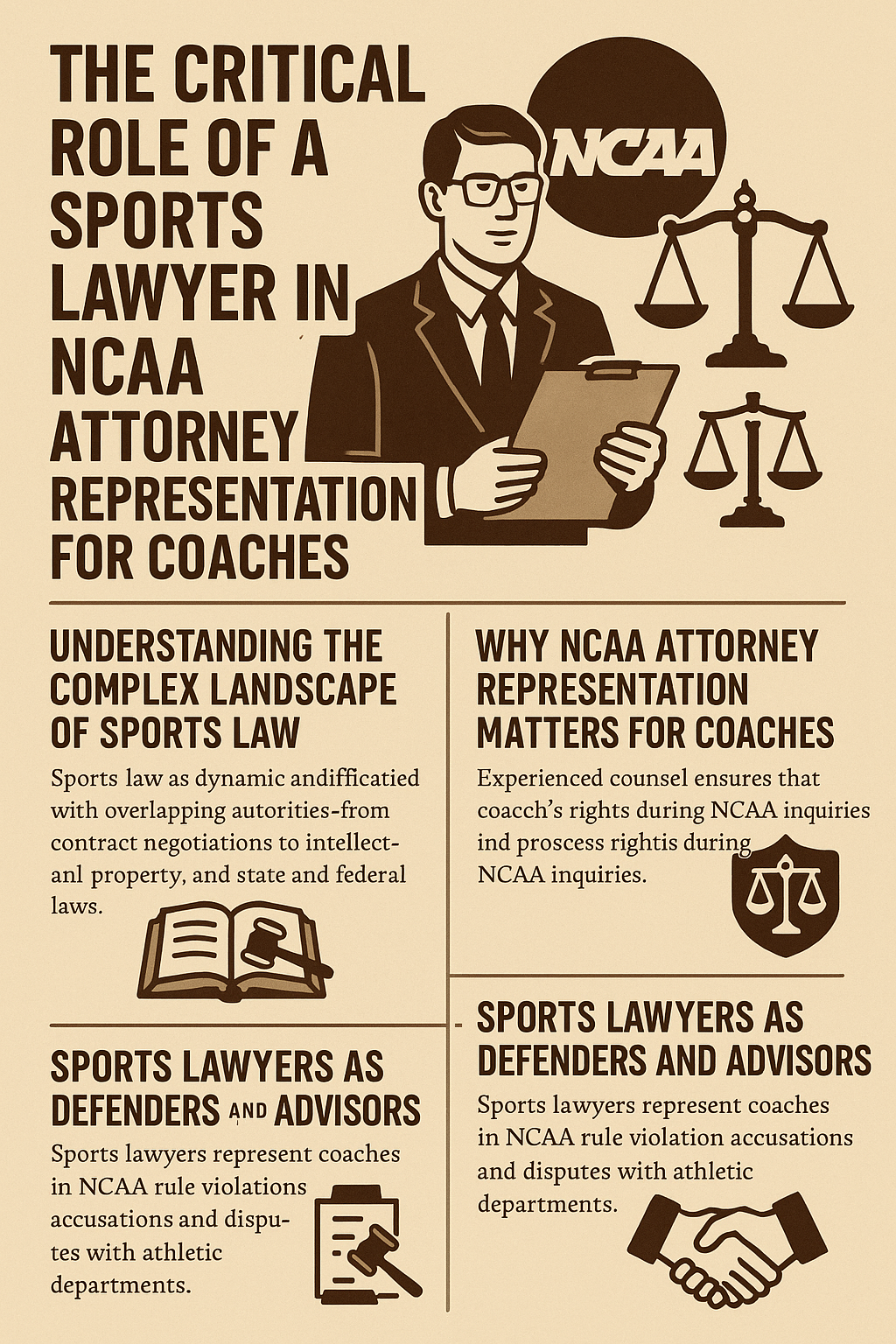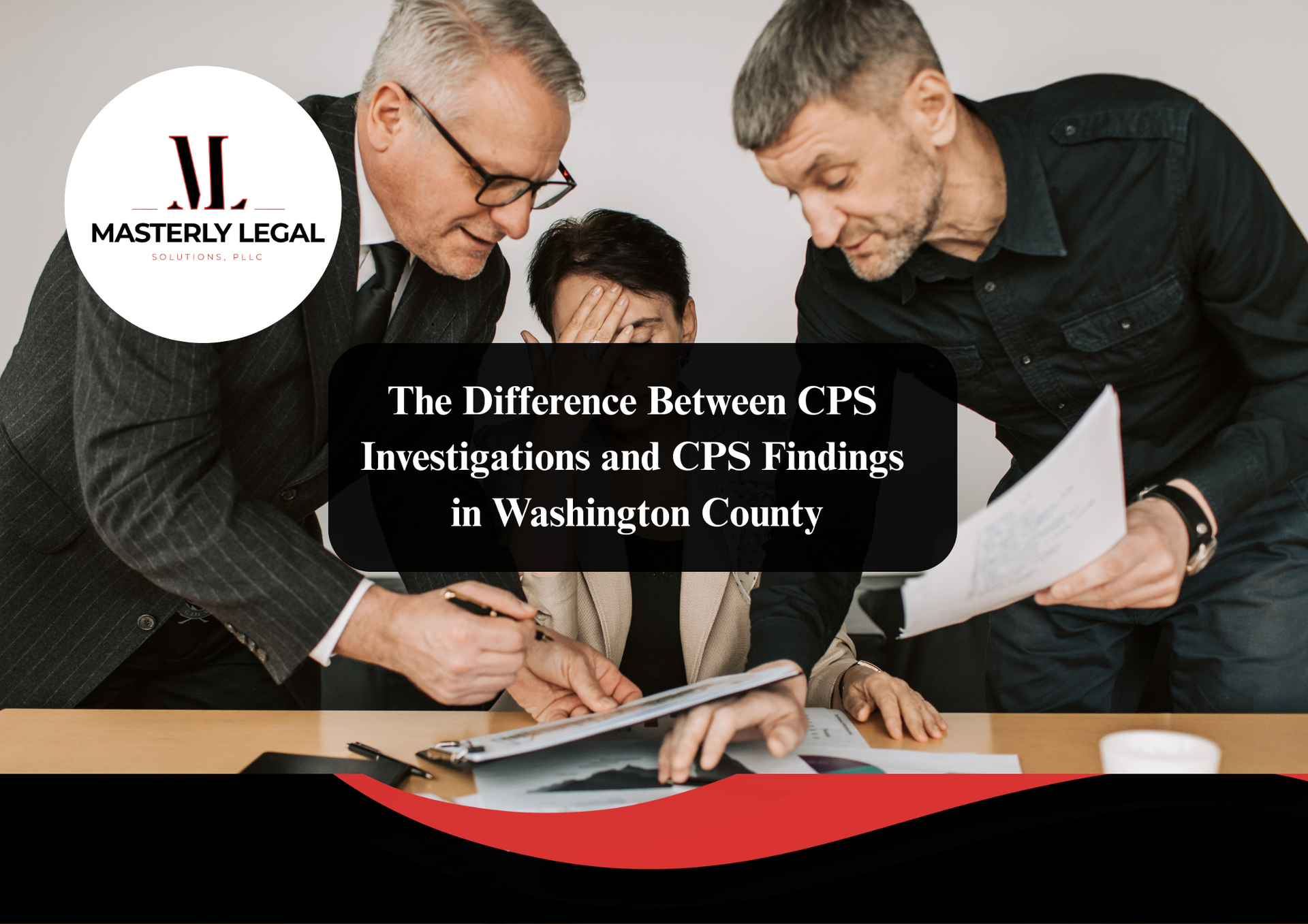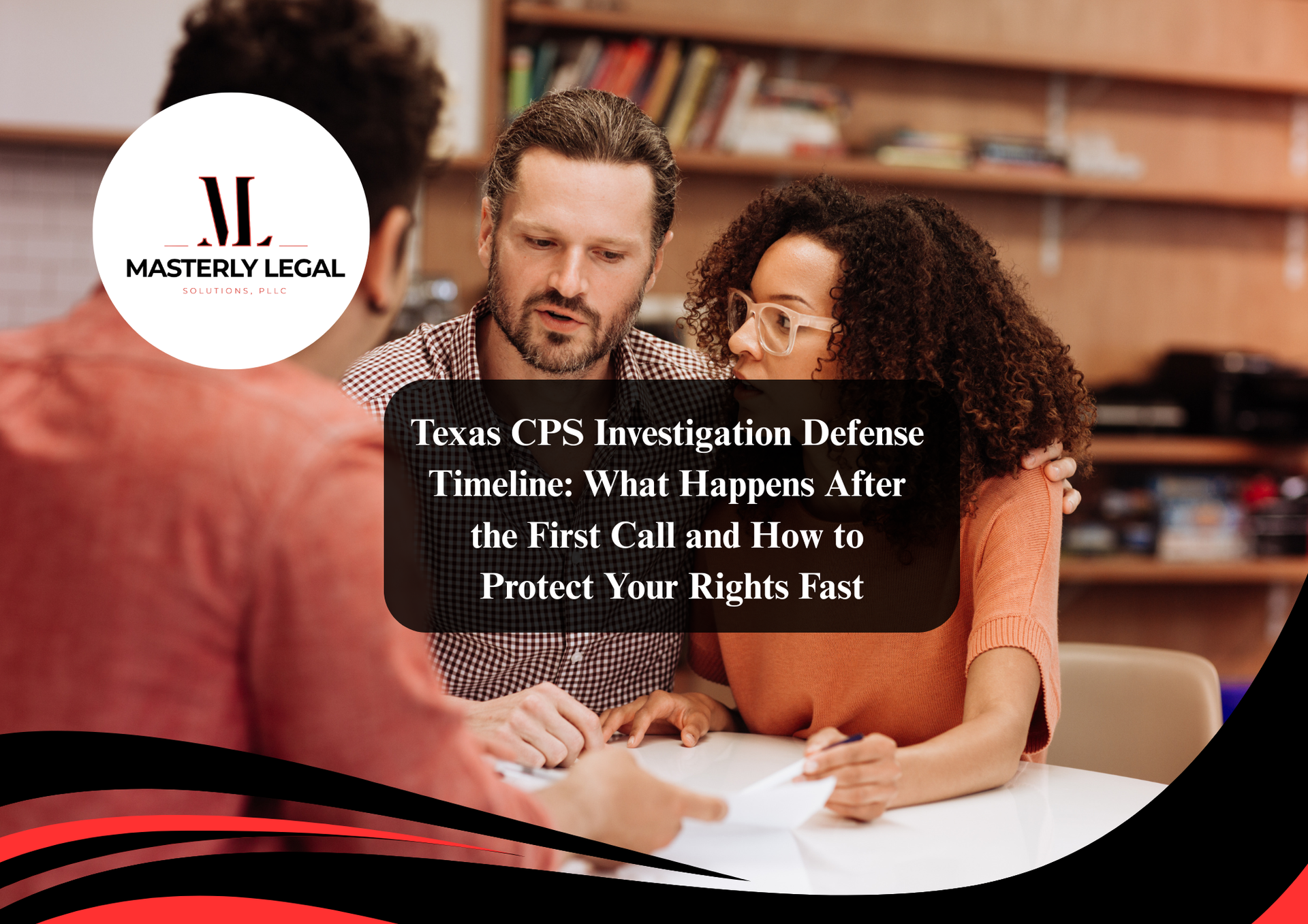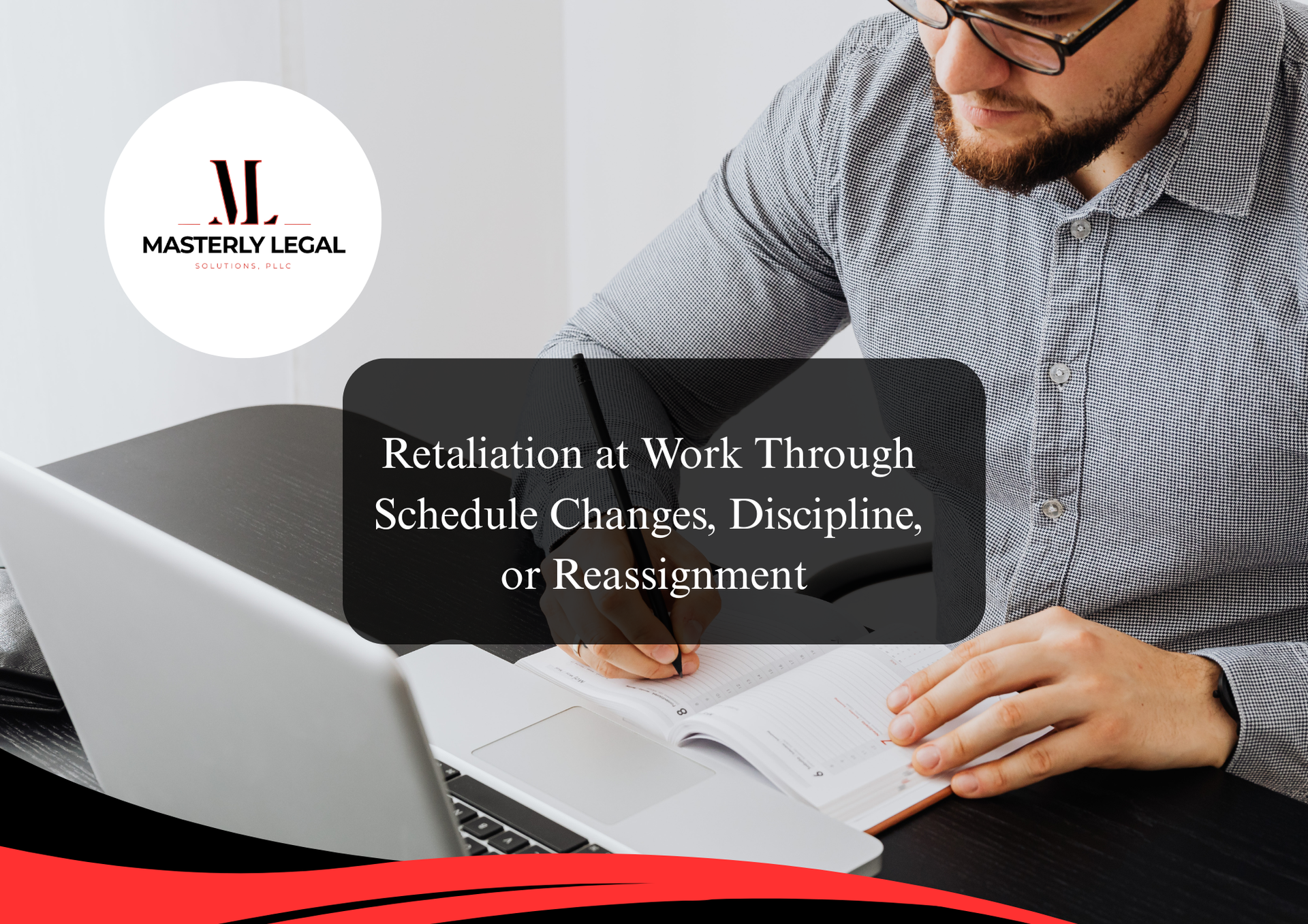The Critical Role of a Sports Lawyer in NCAA Attorney Representation for Coaches
Understanding the Complex Landscape of Sports Law
Sports law is a dynamic and multifaceted field that encompasses various legal disciplines—from contract negotiations to intellectual property and regulatory compliance. For coaches operating within collegiate athletics, this legal area becomes even more intricate due to the overlapping authority of sports governing bodies like the NCAA, sports leagues, and state and federal laws. The evolving nature of the sports industry requires highly skilled sports lawyers who understand the nuances of both professional sports and collegiate frameworks.
Sports lawyers not only address immediate legal issues but also safeguard the long-term interests of their sports clients. Whether the concern involves a breach of player contracts, employment matters, or compliance matters with NCAA regulations, effective representation ensures that coaches can focus on their teams without worrying about the complex legal terrain surrounding them.
Why NCAA Attorney Representation Matters for Coaches
NCAA attorney representation is vital for coaches navigating the challenging rules and compliance requirements that govern collegiate athletics. With the NCAA imposing strict guidelines on recruitment, eligibility, and compensation, one misstep can lead to severe sanctions. Coaches often find themselves at the center of investigations involving alleged rule violations—making professional sports lawyers essential.
An experienced counsel ensures that a coach’s rights are protected during NCAA inquiries and provides strategic advice on how to respond to potential legal challenges. These attorneys also serve as a bridge between coaches, athletic departments, and NCAA investigators, ensuring all communications and documents are managed with precision and confidentiality.
The Expanding Role of Sports Lawyers in the Sports Industry
The sports industry has evolved beyond the playing field. Modern sports lawyers must now address business, media, and intellectual property challenges that arise from sponsorship agreements, media rights, and branding deals. Coaches—particularly those leading successful teams—become public figures who attract sponsorship and endorsement opportunities. Proper legal counsel ensures compliance with NCAA regulations while protecting a coach’s reputation and financial interests.
Sports lawyers frequently handle:
- Contract negotiations and drafting contracts
- Media rights and rights agreements
- Sponsorship and licensing deals
- Regulatory compliance and governance issues
- Dispute resolution and litigation
By managing these legal matters effectively, law firms specializing in sports law protect coaches from unnecessary risk while optimizing their professional opportunities.
Sports Lawyers as Defenders and Advisors
Sports lawyers serve as both defenders and advisors to their sports clients. In collegiate settings, this includes representing coaches accused of violating NCAA rules or dealing with disputes involving team owners, sports governing bodies, or athletic departments. Many attorneys also provide outside general counsel services, guiding schools and coaches on regulatory compliance, employment policies, and intellectual property rights.
The value of effective representation becomes clear during investigations or disputes. Coaches who attempt to handle NCAA inquiries without experienced legal counsel risk jeopardizing their careers. A skilled sports lawyer mitigates exposure, defends against allegations, and ensures fair treatment in disciplinary proceedings.
Legal Issues Coaches Commonly Face
The legal issues surrounding collegiate coaching careers are vast and varied. Some of the most common include:
- Contract disputes: Disagreements over player contract clauses, buyouts, and termination provisions.
- Compliance violations: NCAA infractions relating to recruitment, eligibility, or improper benefits.
- Employment matters: Wrongful termination, non-compete agreements, and workplace discrimination.
- Intellectual property disputes: Misuse of team logos, trademarks, or copyrighted materials.
- Media and publicity rights: Protecting personal and team brand image in broadcast and promotional content.
A sports lawyer’s role extends to handling these disputes efficiently and discreetly, allowing coaches to maintain their credibility within the sports world.
The Importance of Contract Negotiations
Contract negotiations form a cornerstone of sports law. Coaches, like professional athletes, rely on carefully structured contracts to define compensation, bonuses, and exit clauses. Sports lawyers play a critical role in ensuring these agreements reflect their clients’ best interests.
Whether negotiating contracts for a collegiate coach or handling player contract terms for professional teams, lawyers must understand market standards, performance incentives, and compliance with sports leagues’ collective bargaining agreements. In many cases, a sports lawyer’s legal skills can mean the difference between a favorable contract and one that limits future opportunities.
How Sports Lawyers Navigate NCAA Investigations
When NCAA investigations arise, coaches face potential penalties that can end their careers. Sports lawyers act swiftly to protect their clients’ reputations and positions. Their responsibilities during investigations include:
- Reviewing all communications and documents for accuracy and compliance.
- Advising on media responses to avoid reputational damage.
- Negotiating with governing bodies to minimize penalties or sanctions.
- Developing a defense strategy based on evidence and procedural fairness.
A lawyer experienced in sports governance understands how the NCAA operates and how to leverage its procedures to ensure fair treatment for coaches and teams.
The Connection Between Collegiate Athletics and Professional Sports
Many coaches transition between collegiate athletics and professional sports, bringing with them unique contractual and compliance challenges. Sports lawyers provide continuity across these transitions, advising on professional sports team agreements, sponsorship contracts, and intellectual property ownership of coaching materials.
This legal guidance ensures compliance with both NCAA rules and the broader legal frameworks governing professional leagues. Whether representing coaches, athletes, or sports organizations, attorneys must balance the competing interests of sports governing bodies and professional sports teams.
Protecting Intellectual Property in the Sports World
Intellectual property rights are central to the sports world. Coaches often develop training materials, plays, and strategies that may qualify for copyright protection. Additionally, team logos and branding fall under trademark and copyright licenses that must be carefully managed.
A sports lawyer ensures that coaches and sports organizations retain control over their intellectual property. In cases where disputes arise, such as unauthorized content distribution or misuse of coaching materials, sports lawyers pursue litigation or settlement to protect ownership and value.
Managing Legal Challenges Beyond the Court or Field
Coaches and sports clients face legal challenges that extend beyond the game. From tax planning to real estate investments and charitable foundations, their business affairs often require the oversight of law firms with sports and entertainment expertise. Sports lawyers provide holistic support, addressing:
- Wealth management and tax planning strategies
- Joint ventures with sponsors or sports agencies
- Charitable foundation compliance
- Real estate development near sports facilities or sports arenas
This broad understanding of business and law allows lawyers to deliver tailored legal solutions for each client’s unique circumstances.
How Law Firms Support Sports Clients and Teams
Top law firms with dedicated sports law divisions offer a multidisciplinary approach that benefits sports teams and individual coaches alike. They provide services that include:
- Drafting and negotiating contracts and rights agreements
- Advising on sponsorship and endorsement opportunities
- Assisting in dispute resolution and litigation
- Handling regulatory compliance and governance issues
- Offering outside general counsel for long-term strategy
This level of professional support ensures that coaches, athletes, and teams operate smoothly within the complex sports sector.

Dispute Resolution and Litigation in the Sports Industry
Disputes are inevitable in the competitive sports industry. Whether between teams, players, or governing bodies, the role of sports lawyers in dispute resolution is crucial. Their ability to mediate, negotiate, or litigate determines how swiftly and fairly conflicts are resolved.
In collegiate athletics, litigation may involve employment disputes or claims of unfair disciplinary actions. Skilled sports lawyers understand the procedural frameworks of sports leagues and the NCAA, allowing them to achieve favorable outcomes while maintaining professional reputations.
The Relationship Between Sports Agencies and Legal Counsel
A sports agency may represent a coach or athlete in marketing and endorsement deals, but it is the sports lawyer who ensures these agreements comply with NCAA and league rules. The collaboration between agencies and lawyers protects clients from conflicts of interest and potential regulatory breaches.
By maintaining clear boundaries between commercial and legal responsibilities, attorneys preserve the integrity of both the coach and the organization they represent.
Ensuring Regulatory Compliance Across Sports Leagues
Compliance is at the heart of sports governance. Each sports league and governing body maintains its own set of rules—many of which intersect with national or state laws. Sports lawyers guide coaches and sports organizations through these regulations, helping them maintain eligibility, avoid penalties, and uphold institutional integrity.
This work requires deep familiarity with the sports industry, NCAA bylaws, and international regulations affecting sports and entertainment companies. For coaches, compliance is not optional—it’s essential for career longevity.
Sports Lawyers as Educators and Mentors
Beyond legal counsel, sports lawyers often serve as educators. Many hold law school lectures or seminars on sports governance, employment law, and media rights. They prepare the next generation of sports lawyers to navigate the increasingly digital and globalized sports world, where issues like sports technology and content distribution create new opportunities and challenges.
Their mentorship reinforces the importance of ethical decision-making and compliance in maintaining fair play across all levels of athletics.
How Sports Lawyers Strengthen Professional Relationships
Sports lawyers enhance relationships between coaches, athletic directors, and team owners. By facilitating transparent contract negotiations and fostering mutual trust, they ensure both sides understand their rights and obligations. This leads to fewer disputes and stronger professional collaborations across teams and sports organizations.
An attorney’s ability to blend legal knowledge with interpersonal skills makes them an invaluable partner for anyone in the sports sector.
Media Rights and Modern Legal Challenges
Media rights have become one of the most profitable aspects of the sports industry. As broadcasting and streaming deals expand globally, sports lawyers negotiate rights agreements to protect the financial and intellectual interests of coaches and organizations. They ensure that media contracts align with NCAA restrictions while maximizing exposure and revenue.
These agreements often involve complex licensing terms, requiring deep legal knowledge of intellectual property and content distribution laws.
The Business Side of Coaching Contracts
Behind every successful coaching career lies a well-negotiated business foundation. Sports lawyers manage the business aspects of coaching contracts, including performance bonuses, termination clauses, and confidentiality agreements. They also help clients navigate employment transitions between collegiate and professional teams.
Such strategic planning prevents misunderstandings and positions coaches for future opportunities within the sports and entertainment ecosystem.
Corporate Governance and Team Operations
Sports organizations and professional teams must maintain corporate governance standards similar to large businesses. Legal counsel ensures these entities comply with governing bodies’ requirements, manage sponsorship agreements, and follow ethical employment practices. Lawyers play a central role in structuring these organizations for long-term stability and growth.
Through sound governance, sports lawyers promote transparency and accountability—qualities that benefit both teams and the wider sports community.
Why Coaches Should Hire a Dedicated Sports Lawyer
Hiring a dedicated sports lawyer is not a luxury—it’s a necessity. From dispute resolution to regulatory compliance, these professionals protect the reputations and livelihoods of coaches who operate under constant scrutiny. Their legal skills and industry insight make them invaluable assets for navigating high-stakes NCAA investigations and complex contractual relationships.
A seasoned sports lawyer offers not only defense but also proactive strategies to prevent legal complications before they occur.
Collaboration Between Sports Lawyers, Agents, and General Counsel in NCAA Representation
In the competitive sports industry, effective legal representation requires seamless collaboration between a sports lawyer, a sports agent, and general counsel from universities or sports organizations. While the agent negotiates marketing and endorsement opportunities, the lawyer ensures all rights agreements and contractual terms comply with NCAA and league regulations. This partnership protects both coaches and professional athletes from potential conflicts and violations of governing bodies’ rules. In cases where investigations or criminal charges arise, sports lawyers provide immediate defense and crisis management, safeguarding their clients’ professional standing. Working alongside media and entertainment companies, these attorneys also oversee sponsorships, broadcasting rights, and promotional deals—ensuring every agreement aligns with legal and ethical standards in collegiate and professional sports.
Contact Masterly Legal Solutions for Sports Law Representation
At Masterly Legal Solutions, we understand the unique pressures coaches face in today’s competitive sports world. Whether you’re navigating an NCAA investigation, renegotiating your contract, or facing a dispute with sports governing bodies, our sports lawyers offer experienced counsel and strategic legal guidance.
We represent coaches, athletic directors, and sports professionals across collegiate athletics and professional sports teams, helping you resolve legal matters with confidence. Our law firm focuses on sports law, compliance, intellectual property, and contractual negotiations to safeguard your career and reputation.
Contact us today at (972) 236-5051 for a free consultation to discuss how our sports law attorneys can help you protect your rights and advance your coaching career.
This article is intended for educational purposes only and does not constitute legal advice. For legal guidance tailored to your specific situation, please contact Masterly Legal Solutions directly.
Looking for Legal & Business Solutions? Contact Us Now
Fill in the form or call us to set up a meeting














